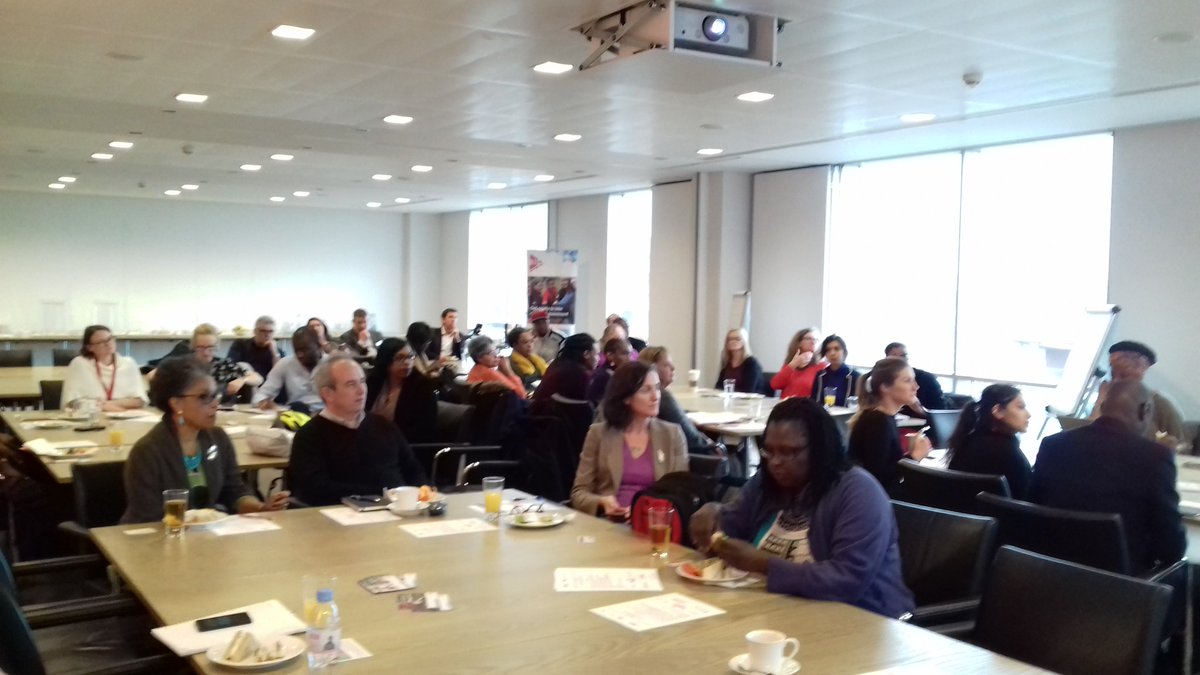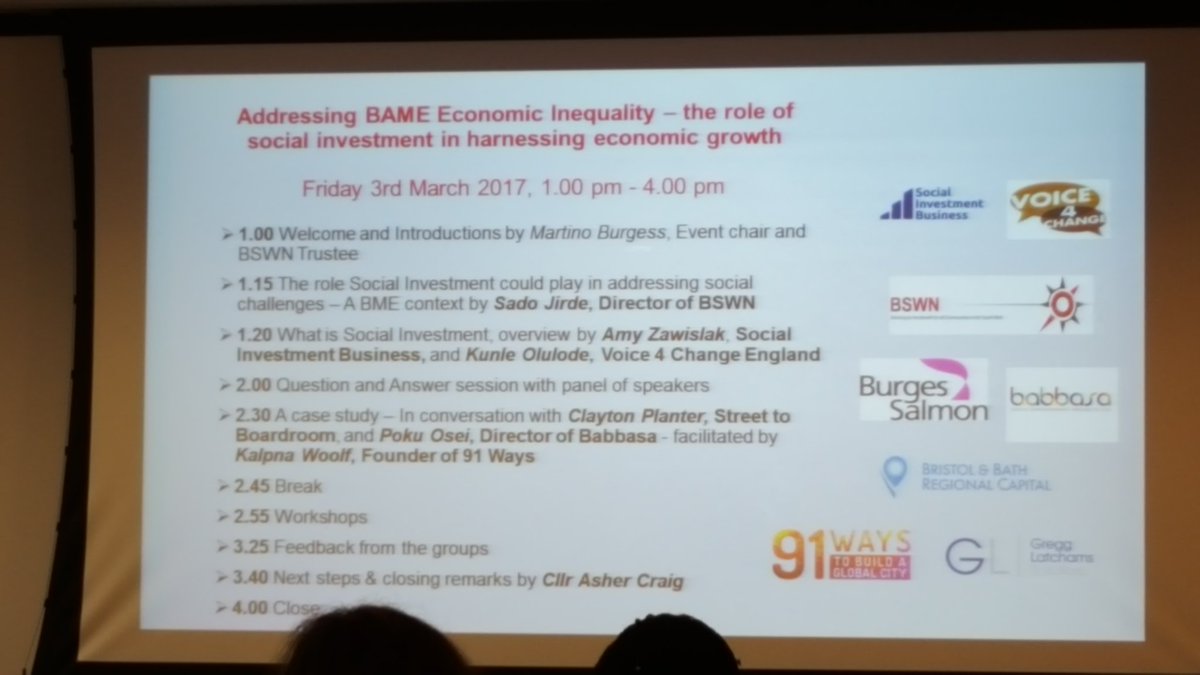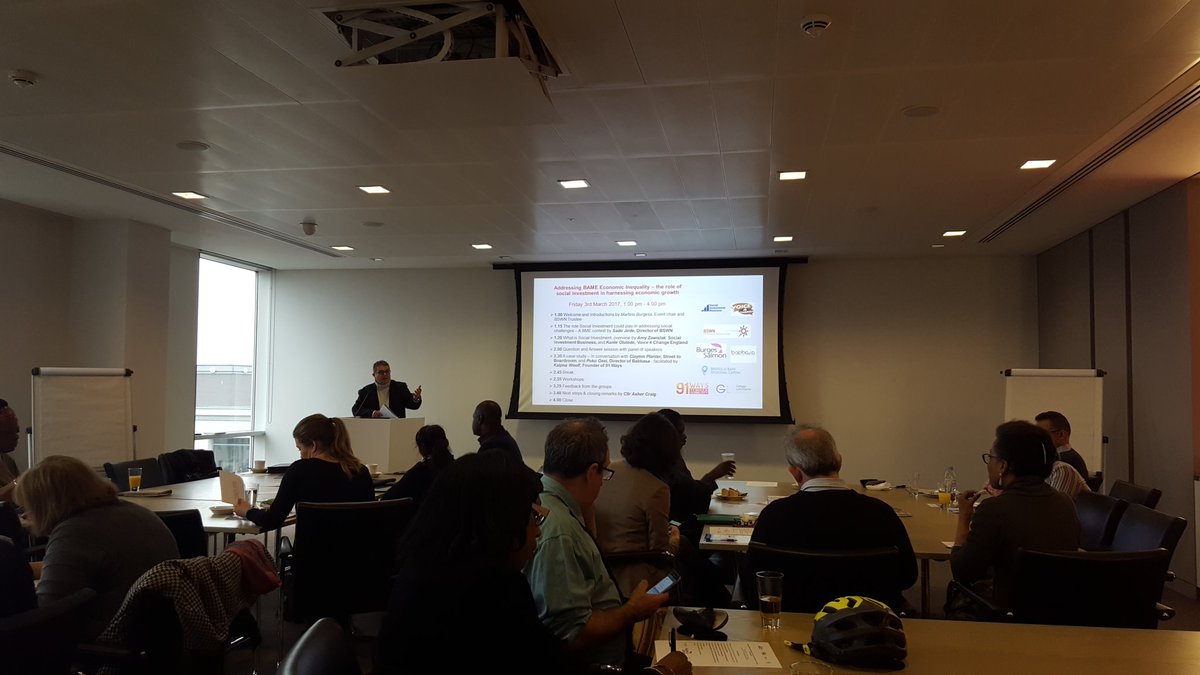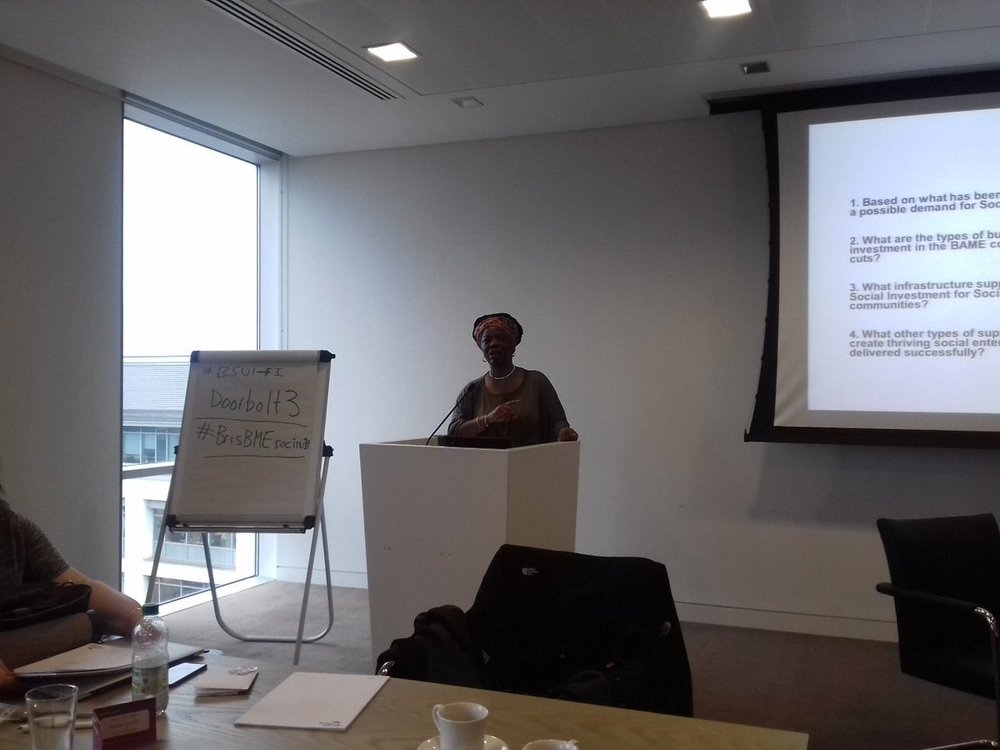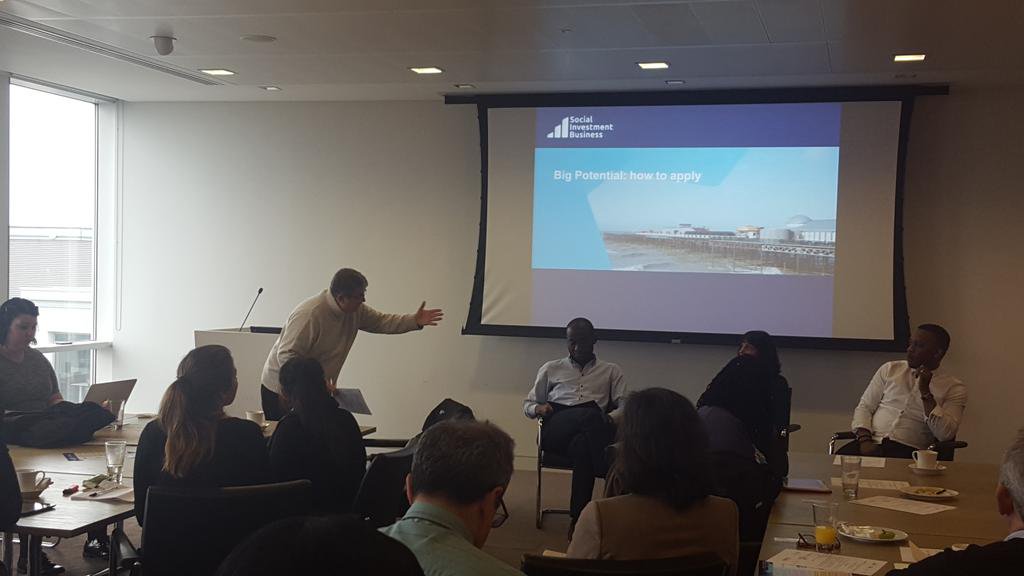On the 3rd March 2017, Black South West Network (BSWN) together with Voice 4 Change England (V4CE), Social Investment Business (SIB) and the legal firm Burgess Salmon hosted a half day event to look at exploring the role of social investment across the BAME sector in Bristol, to address BAME economic inequality and the viability of this route for our communities.
Ted Fowler, who made the introductions and outlined the purpose of the day, opened the event, followed by Sado Jirde, Director of Black South West Network. Sado highlighted the economic challenges faced by the BAME communities in the context of an economically thriving city. She further presented an Economic Development model being explored by BSWN, Babbasa and Bristol & Bath Regional Capital (BBRC). The model takes a collective impact approach way of working by stimulating economic activity within BAME communities, through an enterprise hub with a focus on enterprise/social enterprises and skills development.
Kunle Olulode, Director of V4C, gave a national perspective and talked about the very real challenges and barriers that exist. This was followed by an input from Amy Zawislak from SIB, who outlined the opportunities available around Big Potential. This part of the day was concluded with a short Q&A.
After a break, we looked at case studies of successful social enterprises running in Bristol and heard from Clayton Planter from Street to Boardroom and Poku Osei Director of Babbasa, which was facilitated by Kalpna Woolf, from 91 Ways to build a global city.
This was followed by workshops where participants looked at whether social investment was viable for their group/organisation. They also examined whether this was suitable for certain kinds of groups (such as those who sell products or services) and finally what support was needed to make this meaningful and successful. The findings from the workshop can be seen summarised below:
1. Based on what has been presented to you today, do you think there is or could be a possible demand for Social Investment in the Bristol BAME community?
- Yes, however more awareness needs to be raised about the need for social investment and what options are available
- Mainstream networks need to be engaged and tapped into i.e RSA, Merchants, etc.
- Term ‘BAME’ may be preventing interest from investors - some investors engage more with terms such as ‘public good’, ‘social good’, ‘entrepreneurship’, and ‘collective responsibility'
- Investment seekers need to consider the language they use more carefully, in order to not put themselves into a limited box
- Need for brokering between the system and the communities with business potential
- Begin at school level - teach leadership skills
- Currently social investment is a stop/start process for many businesses - needs to be sustainable
- Great potential in Bristol - 7th most unequal but 4th wealthiest city
2. What are the types of business/initiatives do you think can benefit from social investment in the BAME community, given the context of significant public sector cuts?
a) Housing
- BAME can participate both as investors and developers/builders
- need for a partnership with building associations
- need to be realistic about the space available
- BAME community members can qualify with skills as carpenters, builders, etc. and get ready to set up businesses that can be commissioned by the council
b) Social Care - mental health
c) IT and Technologies
d) Employment
- help potential BME entrepreneurs skill up and provide them with tools to success (Babassa)
- existing organisations facing cuts may benefit better than start ups - potential for a collective application consortia?
e) Catering
3. What infrastructure support do you think is needed to increase accessibility to Social Investment for Social Enterprises/Entrepreneurs operating within BAME communities?
- Some organisations may need help with transitional period from charity to a business model (marketing, investment in capital to maintain market place, strategic planning, development of governance and business plan)
- A problem of mainstream investment accessibility - some models for social investment have criteria which automatically rule out many BME organisations/businesses to apply
- Need for blended grant support in order to enable bandwidth and create spaces
- Awareness needs to be raised within the communities (i.e 8-10% Princes Trust for BAME employees)
- ‘old school’ and new ways of trading and networking - smaller community/family businesses
- making information available in multiple languages and on different language levels
- Better effort to be made with existing local and national bodies - Business West and BAME community connections
- Big potential for work with existing trusted organisations such as BSWN and V4CE
- What role does social value play in investment?
- Need for effective measuring of impact - understanding the positive impact of social investment in BAME can encouraged future investors
4. What other types of support do you think is needed in the BAME community to create thriving social enterprises/entrepreneurs and how do you envisage it being delivered successfully?
- Use existing channels i.e Ujima
- Help with language and packaging - relatable to all ages and a wide audience
- Brokerage and local trust can create specialist roles
The day concluded with closing remarks from Deputy Mayor and one of the original founders of V4CE, Cllr Asher Craig. In her speech, Cllr Craig was pleased that the discussion around social investment as an alternative funding model for BAME organisations and social entrepreneurs was finally initiated. She welcomed BSWN’s economic development model that was presented at the event, and was looking forward to seeing its progression and providing her support. Altogether approximately fifty people attended the half-day session.



